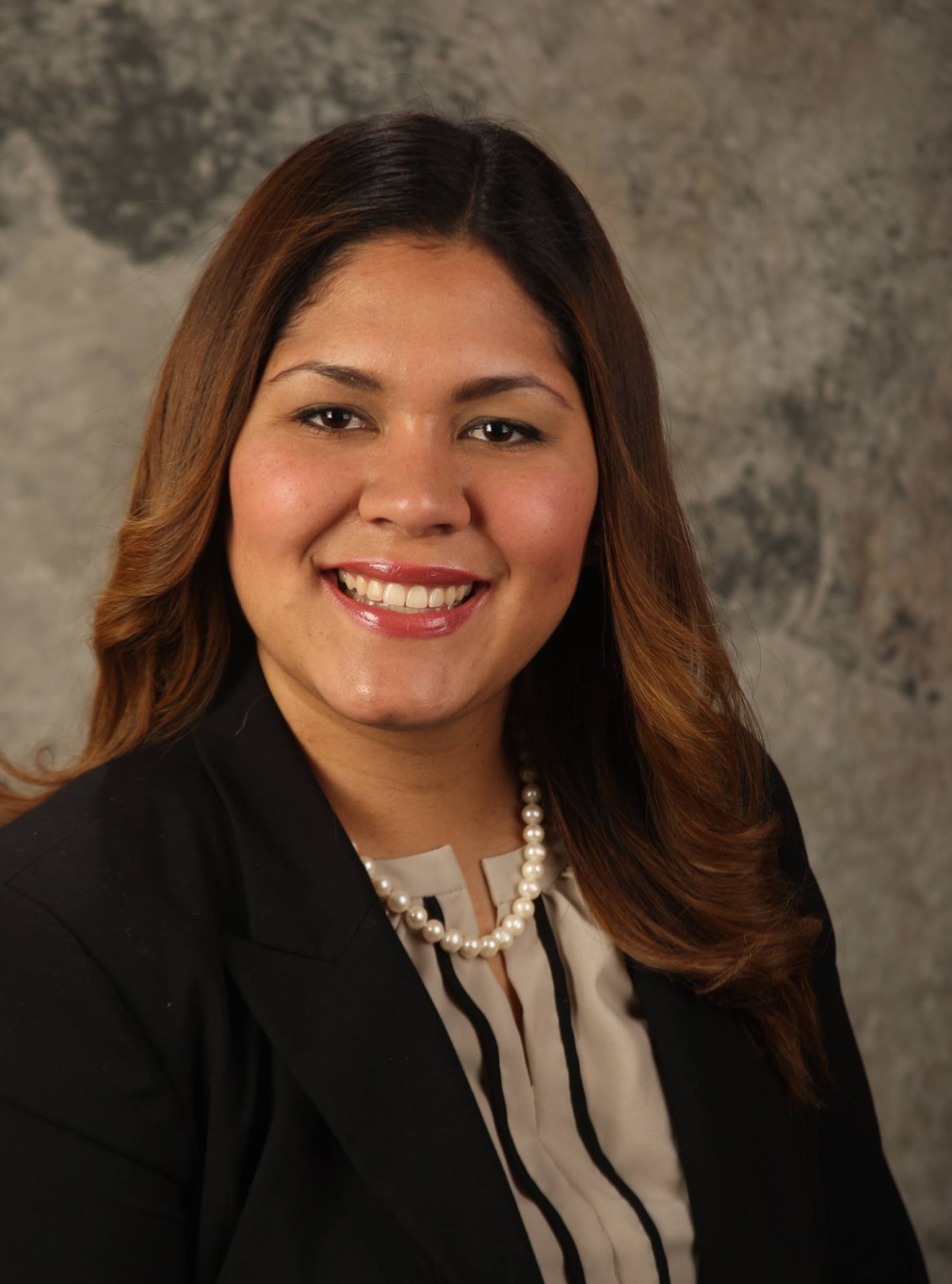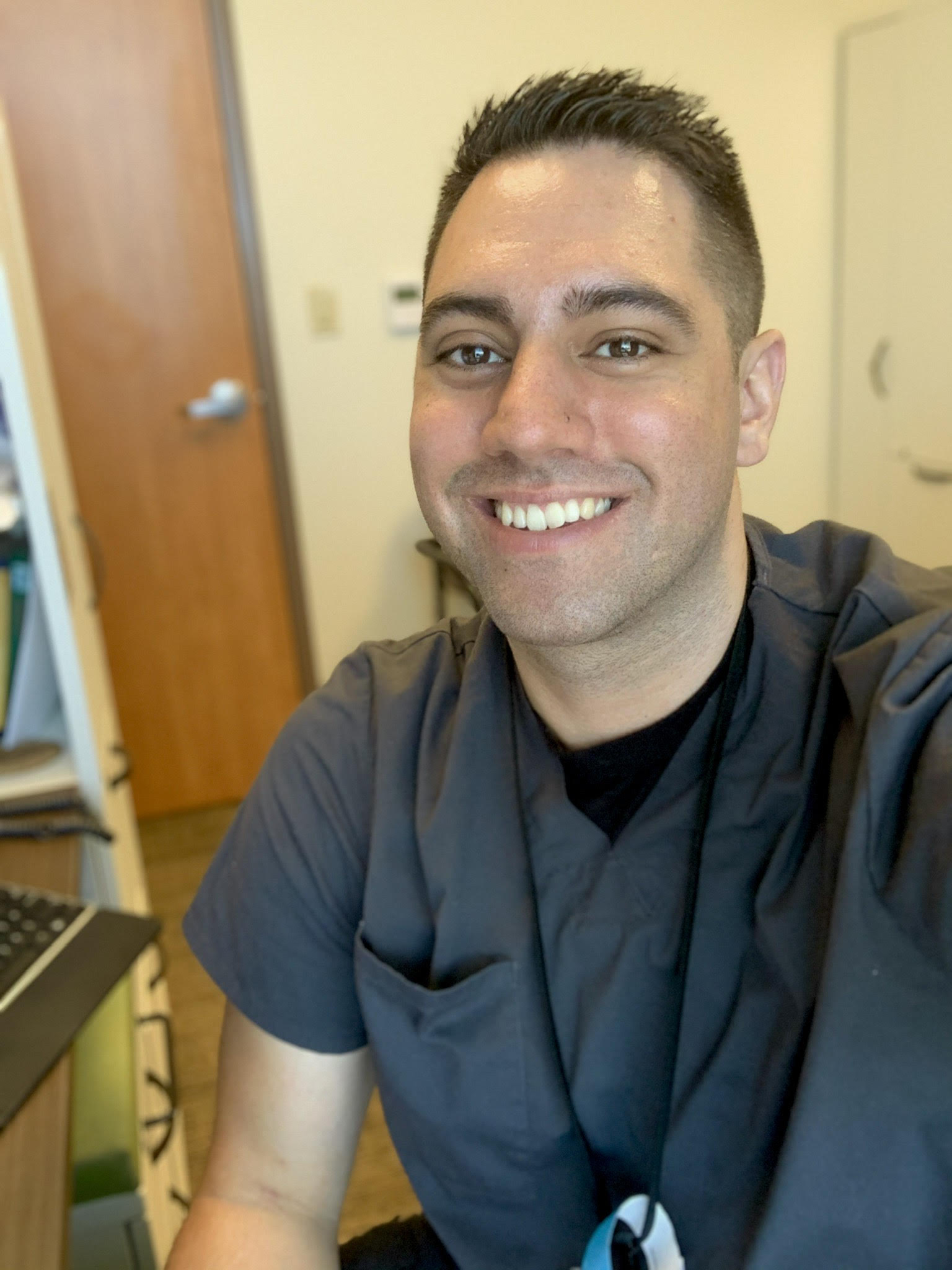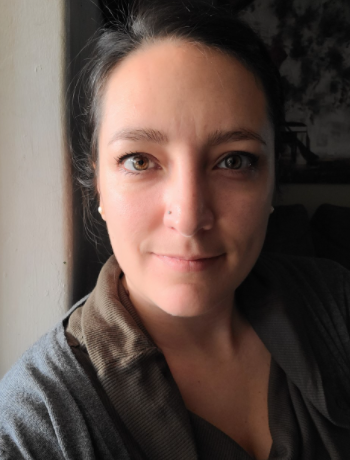5 doctoral students begin inaugural Race Relations Scholar program

Photo courtesy of pexels.com
In fall 2020, the School of Historical, Philosophical and Religious Studies launched a new initiative to promote the study of racism and racial relations in graduate studies at Arizona State University known as the Race Relations Scholar Award.
Five on-ground students pitched essay projects and were awarded the scholarship to join the first cohort of Race Relations Scholars. The students are from different programs from across ASU disciplines, each bringing a unique approach to the topic of race relations.
Students were chosen based on a submitted proposal describing how their research is related to race relations, or how they plan to conduct research on the topic.
“All of the award’s students are focusing their research essays to improve race relations in some way,” said Regents Professor of history Donald Fixico. “Their writing projects address a range of topics including African American, Latino American and Indigenous peoples. They are addressing the problems of social injustice in society that have been widespread throughout the country.”
ASU News caught up with them to ask about their proposed projects and research. Their answers have been edited for clarity and length.
Elizabeth Altamirano
Elizabeth Altamirano
Elizabeth Altamirano is a sixth-year doctoral student in the counseling psychology program at ASU. She earned her bachelor’s degree in psychology from the University of Central Florida and an associate degree from Broward College.
Her parents were forced to flee Honduras in 1980 due to violence and extortion by gangs, severe levels of poverty and generational trauma to seek asylum in the U.S. They remained undocumented and struggled to obtain citizenship before the Immigration Reform and Control Act of 1986, which legalized most undocumented immigrants who had arrived in the country prior to January 1, 1982.
Altamirano faced hardships as a member of a mixed-status family and as a Latina in the U.S. with language barriers, acculturation stress and limited mental health services. In spite of these difficulties, she learned the value of resilience and familismo, which remains a central part of her identity as a proud Latina.
“My personal experiences inspired my career ambitions to serve the Latinx community and sparked my initial interest in psychology,” Altamirano said. “My parents' bravery and sacrifices also encouraged me to take advantage of the educational opportunities they never had.”
Question: What research do you focus on outside of the Race Relations Scholar Program?
Answer: I have a wide range of research experiences and summer programs that enhanced my knowledge of diverse populations. As a McNair scholar, my research sought to understand the relationship between depressive symptoms and psychological constructs such as acculturation, psychological homelessness and marginalization among Latinx immigrants in the community of Florida. As a doctoral student, I conduct research on police brutality among Latinx individuals.
Also, I have been a research assistant for several independent research projects that focus on Latinx health disparities. For example, I serve as a graduate research assistant for Dr. Luz Garcini, where we investigated the mental health of recently deported immigrants and their experiences with deportation. Furthermore, I was funded by the National Institutes of Health and Minority Health and Health Disparities to participate in a summer program, Minority Health and Health Disparities International Research Training, under the mentorship of Dr. Steve Lopez from the University of Southern California.
Q: Can you tell me a little bit about your proposed project?
A: As a scientist-practitioner, I have sought to further inform practitioners on how to incorporate multicultural awareness into therapy through my research. There is a paramount need to explore the challenges faced by Latinxs to enhance their quality of life and decrease their psychological distress. More specifically, my research is centered on the mental health needs and social injustices towards Latinx communities. Currently, for my dissertation, I will further advance the LPOPS subscale by establishing reliability and validity via confirmatory factor analysis. Results will also help counselors understand a group that has largely been ignored in discussions of police brutality. Data collection is currently underway and I am on track to finish my dissertation before starting a clinical internship.
Q: Was your proposed project one you were already developing or one you developed for the program?
A: It was already in development and serves as my dissertation.
Q: In your own words, what is the importance of research into race relations?
A: My research has promoted my understanding of ethnic minorities' experiences with the police and legal system. Collectively, these research experiences informed my clinical work as results suggest that to decrease health disparities, it is important to understand the hardships encountered and the factors involved in perseverance among Latinxs. My goal is to continue embracing the scientist-practitioner model to spread awareness of the adversities the Latinx community endures, provide culturally and evidence-based treatments that can address the mental health needs of Latinxs and establish interdisciplinary collaboration to advocate and improve the health and well-being of the Latinx community. Overall, bringing awareness to a community that has been ignored when it comes to police brutality is important.
Jamal Brooks-Hawkins
Jamal Brooks-Hawkins earned his bachelor’s degree in theater from DePaul University and a master’s degree in sociology from Virginia Commonwealth University before enrolling at ASU.
After graduating from Virginia Commonwealth University, he worked in community-based organizations for about 10 years before returning to school. He first joined the ASU community in 2015 and received his master’s degree in social work in 2017.
Currently, Brooks-Hawkins is working on earning a PhD in gender studies from the School of Social Transformation. His work looks at social justice movement-building and strategies used to address, process and combat violence and stigmatization.
In addition to his studies he is the president of the Gender Studies Graduate Student Association, an assembly member at-large for the Graduate and Professional Student Association and a co-chair for the JEDI Committee, Graduate and Professional Student Association.
His project for the Race Relations Scholar program will focus on transformation with focus on Black sexualities.
Jamal Brooks-Hawkins was unable to participate in a full interview at the time of publication.
Valencia Clement
Valencia Clement
Valencia Clement is a Haitian American scholar and artist from Queens, New York. She received a full scholarship by the Posse Foundation to attend Vanderbilt University where she majored in human and organizational development.
During her time as an undergraduate, she led several multicultural organizations and served as a resident adviser and head resident. And after receiving her bachelor’s degree, she was awarded a Peabody Honors Scholarship, the most competitive and prestigious award a student can receive from Peabody College, to complete her master's degree in public policy from Vanderbilt.
“During that time I worked for Peabody's inaugural Office of Equity, Diversity and Inclusion,” Clement said. “Upon graduation from Vanderbilt, I went on to work for a digital humanities project called ‘The Wisdom Project,’ where I interviewed elders in the southeastern region of the U.S. on their historical memories of their regions. I also worked as an evaluator in Peabody helping to evaluate the southeast AIDS education training center.”
While she was working, she worked to establish herself as a poet and thought leader and in January 2019, she published her debut poetry collection, “Pale. Pa Ale: Speak. Don't leave.” She has published three more collections since then that discuss issues of medical racism, culturally relevant curricula, anti-Blackness, community organizing and epistemic justice.
She is currently earning her PhD in education policy and evaluation from Mary Lou Fulton Teachers College.
Question: What research do you focus on outside of the Race Relations Scholar Program?
Answer: Outside of the scholar program my research focuses on epistemic justice, pedagogies of humanization and resistance praxis of multiply marginalized communities, including looking at how multiply marginalized people resist hegemonic socialization in pursuit of their authentic selves. My first solo journal publication is forthcoming in the Journal of Curriculum and Pedagogy. It is titled "Our ancestor's gifts: Interpreting intergenerational knowledge about developing a teaching identity." My work is about challenging notions of expertise, knowledge and "scholarship" to be more inclusive in the interest of creating research that humanizes people with dimensions of difference.
Q: Can you tell me a little bit about your proposed project?
A: My proposed project explores the pedagogical value of Black cultural artifacts as a source of culturally relevant curricula for Black communities, especially gender and sexual minorities. My work is a theoretical piece that helps unpack the Black liberation philosophies nested in Black cultural products in the 20th century. For example, I look at the literary and creative works of James Baldwin, Toni Morrison, Octavia Butler, Maya Angelou, August Wilson, Langston Hughes and more, and unpack the important lessons that each author lays out for Black people to learn how to cope with global anti-Blackness, ancestral amnesia and hegemonic trauma. My goal for this paper is to show education policymakers and practitioners that cultural artifacts are not solely a source of entertainment but a source of critical philosophical thought and healing, transformative pedagogy.
Q: Was your proposed project one you were already developing or one you developed for the program?
A: It's been an idea that I've had but have never had the tools or time to develop it further. In my undergraduate program, I wrote a paper about the Black church's influence on musicality of Black people in the South so I've always had an interest in cultural artifacts and how they inform social pedagogy, however, now I'm moving my interests to incorporate more cultural artifacts and I have more tools as a result of the classes I've taken to make a quality argument.
Q: In your own words, what is the importance of research into race relations?
A: This country suffers with historical amnesia when it comes to the harms inflicted on minorities especially Black, Indigenous and immigrant communities. The academic has reinforced this racial bias by publishing and distributing pseudoscience that showcases national racialized ideologies that deem nonwhite constituents culturally and morally inferior. Although there has been a legacy of Black intellectualism since the beginning of time, it's been obscured by an academy that would rather teach "foundational" authors despite their racist, sexist, classist, homophobic postures. Unless we can take a real look at the harms Western research has done to minorities, globally, we will continue to perpetuate these harms. This paper provides a compelling argument for why Black cultural innovators should not only be seen as entertainers but philosophers. By acknowledging the anti-black discrimination that excluded Black people from scholarly spaces, we can take the next step and take the charge of epistemic justice through curricular inclusivity.
Steven Sasa Marsiglia
Steven Sasa Marsiglia
Steven Sasa Marsiglia is a second-generation Samoan American. He received his bachelor’s degree in ethnic studies and anthropology from University of California, Berkeley and then attended the University of Pennsylvania to earn his master’s degree in education.
He worked in higher education as an admission counselor at Loyola Marymount University and in 2018 he began working on a master’s degree in counseling psychology at ASU, which he earned in 2020. Marsiglia is currently enrolled in the human development and psychology doctoral program at ASU.
“I really wanted to do both research and licensed clinical mental health work for populations that are typically underrepresented in academia, which is what led me to now being a third year in the counseling psychology PhD program,” Marsiglia said.
Question: What research do you focus on outside of the Race Relations Scholar Program?
Answer: Outside of the scholar program I focus on health disparities and access research, essentially trying to understand social determinants of health, or why communities make the health care decisions that they do. I work with my adviser's data on Latinx sexual minorities, which was a part of a National Institutes of Health grant, and I also do research on Native Hawaiian and other Indigenous Pacific Islander populations.
Q: Can you tell me a little bit about your proposed project?
A: My proposed project attempts to outline the importance of decolonizing our teachings of psychology. Right now, psychology emphasizes "multiculturalism" and "cultural competence" as part of its ethical core components as we train future clinicians to work with individuals from diverse backgrounds. However, psychology is still complicit in using language and pedagogy that disadvantage Indigenous communities. I am proposing a decolonized theoretical framework to be incorporated into future psychology pedagogy that will contend with issues of colonization, imperialism and the creation of settler states by the U.S. that have created lasting impacts on the health of current generations of native peoples. These issues in particular are often ignored because we lack Indigenous voices and representation in psychology and in most professional health fields in general.
Q: Was your proposed project one you were already developing or one you developed for the program?
A: The project is an expansion of a research manuscript, which is currently under review, that explores the effects of census classifications of race and ethnicity.
Q: In your own words, what is the importance of research into race relations?
A: The study of race relations is pivotal to understanding where our research methodology has come from, and why we choose to do things the way we do now as research scientists. I believe some researchers do not fully understand that a lot of the tools and terminology we use today were inherited from harmful methods of inquiry. From a top-down perspective, this is why we still have adverse misrepresentation in published manuscript samples such as "Asian or Pacific Islander," or Middle Easterners still forced to check "white" in study solicitations, etc. A repeated phrase we used in undergrad while I was studying ethnic studies was "know history, know self," from Filipino scholar Jose Rizal. It's still as important today that researchers know where they and their field have come from in order to know where to go — to do research that is not just impactful, but equitable and socially just. The study of race relations I believe embodies that mentality.
Kira Olsen-Medina
Kira Olsen-Medina
Kira Olsen-Medina grew up in Arizona and competed in scholastic chess tournaments. She loved the game and wanted to share her passion for it with kids. For the last five years she has worked with students ages pre–K through eighth grade across the greater Phoenix area.
“These experiences are also what made me fall in love with teaching, becoming a mentor and helping kids discover confidence in their intellectual abilities was extremely rewarding,” Olsen-Medina said. “Especially as a woman in a male-dominated sport, young girls need to know that the game is not just for boys.”
Olsen-Medina received two associate degrees from Phoenix College, in forensic technology and in social sciences before attending ASU. At ASU she earned her bachelor’s degree in sociology before enrolling in a master’s degree program for American studies, which she is currently working on.
Question: What research do you focus on outside of the scholar program?
Answer: I am currently working as a graduate research assistant with Carlos Vélez-Ibáñez at the School of Transborder Studies at ASU. I have been helping with two grant proposals, the first project, the High School Equivalency Project, focuses on establishing pathways for migrant seasonal workers and their families to obtain their high school equivalency. This work will improve our understanding of the complexities of transnational labor and the generational impacts on Latinx educational attainment. For the second project, we are proposing to study the long-term effects of legalization and naturalization through the Immigration Reform and Control Act on the educational attainment and socioeconomic mobility of Mexican-origin beneficiaries and their children.
Q: Can you tell me a little bit about your proposed project?
A: The working title is, “Legal Status and Educational Attainment among Latinx Immigrants in the United States.” It is studying the historical evolution of the borderlands as a means of understanding contemporary xenophobic discourses linked to colonial legacies. I examine how nation-state social structures such as immigration policy, border enforcement, deportation mechanisms and national identity continue to shape the power dynamics of migration. My research will consider how these politicized social structures, racialized illegality and varying dimensions of legal status affect Latinx immigrant’s social stratification and intergenerational mobility in the U.S.
Combining a historiographical analysis of immigration policies that have legalized unauthorized immigrants, such as IRCA and DACA, including descriptive statistics from Current Population Survey (2014–2018) data to look at the heterogeneity within Latinx subgroups’ education attainment, by countries of origin and nativity status.
Q: Was your proposed project one you were already developing or one you developed for the program?
A: My proposed project was something I was already developing for my thesis and I felt my research was a good fit with the new fellowship program. I think it is great that ASU is acknowledging the need for programs like this. And in doing so, has developed an interdisciplinary space for rising scholars to build a community of support and have critical discussions about race relations in the U.S. Which has also helped to develop our own research projects.
Q: In your own words, what is the importance of research into race relations?
A: We are at a critical juncture in this nation’s history and how we move forward matters. There is an extensive history of racial domination under which this country was built on, so to say the events at the Capitol this January were not deeply tied to issues of white supremacy would be short-sighted at best. This research project has provided intellectual space to call-out these overwhelming hypocrisies. I believe we need to take a stand as a community, in solidarity, against anyone who supports or endorses ideologies of white supremacy.
The Biden administration has released a progressive immigration agenda and I am excited to see more humanitarian policies enacted. Immigrants have been dying at disproportionate rates during this pandemic, putting their lives at risk to work essential jobs and yet we have done extraordinarily little as a nation to acknowledge their contributions. For example, immigrant Filipino nurses working front-line jobs have accounted for 30% of COVID-19 related deaths among nurses yet they only make up 4% of the nurse workforce. Meanwhile other countries have extended various rights and benefits, even citizenship, to essential immigrant workers in recognition of their service.
More Science and technology

Time-consuming task of conserving Jane Goodall Institute field notes gets a boost from AI
Arizona State University is continuing the legacy of scientist, conservationist and ethologist Jane Goodall by bringing decades…

AI and robotics researchers at ASU work to keep people safe, healthy
As Arizona State University continues to shine in U.S. patent rankings, robotics and artificial intelligence garner a growing…

A new chapter in national security research at ASU
In 1957, the Soviet Union launched Sputnik, the world’s first artificial satellite, into a low orbit around the Earth. Only the…



